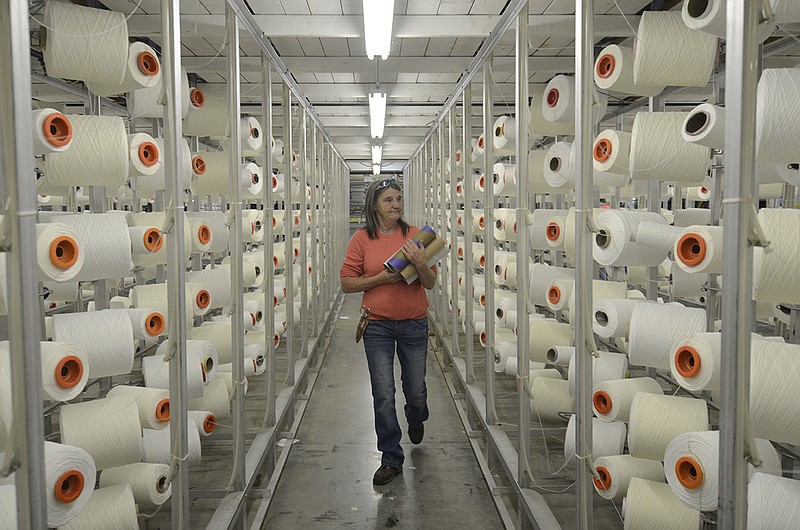Dixie Group revamps $75 million in debt
The Dixie Group said Monday it negotiated a $75 million, five-year, senior secured revolving credit facility with Fifth Third Bank National Association to replace the company's current secured credit facility with Wells Fargo Finance.
At the same time, the Dalton, Georgia-based carpet maker said it entered into a $10 million 25-year term loan with AmeriState Bank and a $15 million 10-year loan with Greater Nevada Credit Union.
"This provides us secured financing over the next five to 25 years," Dixie CEO Dan Frierson said. "The simplified debt structure and substantial increase in availability will afford the company the credit it needs to address challenges we may face in the future and to fund growth in the company's residential hard and soft surface businesses."
Friendly's Restaurants files for bankruptcy
Friendly's Restaurants, the 85-year-old East Coast dining chain known for its Fribble milkshakes and ice cream sundaes, is filing for bankruptcy protection.
It joins a growing list of well-established restaurant chains that are failing due to an unchecked pandemic in the United States.
George Michel, CEO of FIC Restaurants Inc., Friendly's parent company, said COVID-19 has had a "catastrophic impact" on operations. FIC will sell essentially all of its assets to the restaurant company Amici Partners Group.
All 130 Friendly's locations, which stretch from Maine to Florida, will remain open while the chain restructures under Chapter 11 bankruptcy protection, the company said late Sunday.
The pandemic has hit the restaurant sector very hard, particularly chains like Friendly's that rely on people sitting down at tables. At least 10 chains have filed for bankruptcy protection since the pandemic began this year.
Traffic at full-service restaurant chains in the U.S. plummeted 48% in the April-June period, according to NPD Group. Visits were down 25% in the June-September period, as restrictions were eased in some parts of the country.
Construction spending up 0.3% in September
U.S. construction spending rose 0.3% in September, the fourth straight monthly gain after a coronavirus-caused spring swoon.
The Commerce Department reported that the September gain followed followed a revised gain of 1.3% in August. Spending on residential construction was strong yet again, with single-family home projects jumping 5.7%. Total residential construction was up 2.7%, while government construction spending fell 1.7%.
During the first nine months of 2020, construction spending is up 4.1% over the same period last year. Demand for single-family homes remains strong as buyers rush to the market pushed by historically low interest rates under 3%.
Manufacturing grows to highest in 2 years
U.S. manufacturing posted a strong gain in October to the highest level in two years even as coronavirus cases were beginning to surge again in many parts of the country.
The Institute for Supply Management, an association of purchasing managers, said Monday that its manufacturing index rose by 3.9 percentage-points to a reading of 59.3% last month, up from 55.4% in September. It was the highest level for this closely watched barometer of manufacturing health since September 2018.
Treasury projects higher borrowing
The U.S. Treasury is projecting that it will need to borrow $617 billion in the final three months of 2020 as the government boosts the sale of Treasury securities to cover record budget deficits.
Treasury Department officials said Monday that the $617 billion in marketable borrowing for this quarter would be up 35.9% from the $454 billion that the government borrowed in the July-September quarter. But it would be far below the all-time record of $2.75 trillion borrowed in the April-June quarter.
The record borrowing came after Congress passed $3 trillion in relief measures to provide such things as $1,200 payments to individuals, support for small businesses and expanded unemployment benefits of $600 per week.
- Compiled by Dave Flessner
